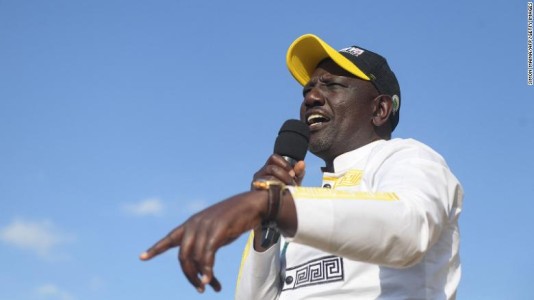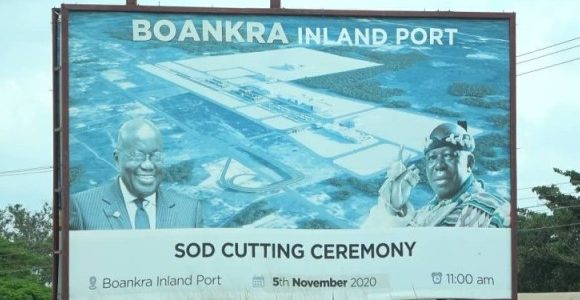William Ruto Declared Winner Of Kenyan Presidential Vote Amid Chaos At Election Center

Kenya’s Deputy President William Ruto has been elected as the country’s next President, the electoral commission announced Monday.
Ruto won with 50.49% of the vote, narrowly defeating veteran opposition leader and former Prime Minister Raila Odinga, who was contesting his fifth election.
He will become Kenya’s fifth President since independence, winning the seat on his first attempt. Ruto’s party, the Kenya First coalition, has won a majority of seats in Kenya’s senate, the second highest in the National Assembly.
The results announcement was delayed for more than two hours past the constitutional deadline and the country’s electoral commission was split, after four officials disowned the commission’s chairman Wafula Chebukati’s results.
The opposing officials staged a press conference of their own at another venue disputing the official results. The IEBC’s vice chair Juliana Cherera was among those who disagreed with the results but provided no evidence of irregularities.
Earlier Monday, Ruto’s rival Odinga’s coalition also rejected the election results before they had even been announced by Kenya’s Independent Electoral and Boundaries Commission (IEBC).
Odinga’s chief agent Saitabao Kanchory told the press outside the national election center in Nairobi that they had not yet been able to cross check the final result with their own tally.
“Once we see them, we want to verify them, when we verify them, we will be able to know and to tell the Kenyan people, because a result that is not verifiable is not a result.” Kanchory told reporters awaiting the results announcement.
The national tallying center briefly descended into chaos shortly after Odinga’s coalition rejected the results, with fighting breaking out and chairs being thrown in the building.
‘It’s not over till it’s over’
Ruto thanked the people of Kenya for voting him as the next leader of the country in his first speech after being announced the winner of the election.
“In this election, there are no losers. The people of Kenya have won because we have raised the political bar. The people of Kenya are the biggest winners,” he said
He expressed his “gratitude” to Kenyan citizens “who refused to be boxed into tribal cocoons.”
He also thanked his competitor and veteran opposition leader Raila Odinga, and said: “We dwelled on issues and tried to sell an agenda to the people of Kenya during the campaign.”
“It was God that brought us here … my team and I will make sure that the sacrifices made by many Kenyans is not in vain …I will run a transparent, open, democratic government and I will work with the opposition to the extent that they provide oversight over my administration,” he added.
There was a divided response to the presidential election results in Kenya on Monday evening. In Eldoret, live pictures from Ruto’s hometown showed large crowds celebrating and cheering his win.
But in Kisumu, Odinga’s stronghold, protests erupted. Live images showed scores protesting the election results, tires on fire and smoke billowing in the air.
Odinga’s running mate Martha Karua also took to Twitter following the results announcement and said: “It is not over till it is over.”
The ‘hustler-in-chief’
Analysts had predicted a win for Odinga, given his performance in opinion polls and the support he enjoyed from outgoing President Uhuru Kenyatta.
But Ruto’s populist “man-of-the-people” approach, which rejected political dynasties and played on anti-elite sentiment in the country, endeared him to voters.
He was able to transcend Kenya’s traditionally dynastic politics to beat Odinga, the son of Kenya’s first vice president.
During the campaign, Ruto described himself as the “hustler-in-chief,” citing his humble beginnings as a chicken seller who fought his way up to the top of Kenyan politics.
Political analyst Herman Manyora told CNN ahead of the election that “Ruto has excited the youths … almost in a euphoric sense.”
Ruto, a former teacher who holds a doctorate in plant ecology from the University of Nairobi, has pledged to prioritize Kenya’s economy and “uplift ordinary citizens” as President.
He will come under pressure to provide solutions to Kenya’s pressing economic problems, including growing debt, high food and fuel prices, and mass youth unemployment.
Ruto has a long and varied history in Kenyan politics and was also tried alongside President Kenyatta in 2013 at the International Criminal Court in the Netherlands for alleged crimes against humanity following deadly violence in the 2007 elections. However, the charges were later thrown out.
Source: CNN




